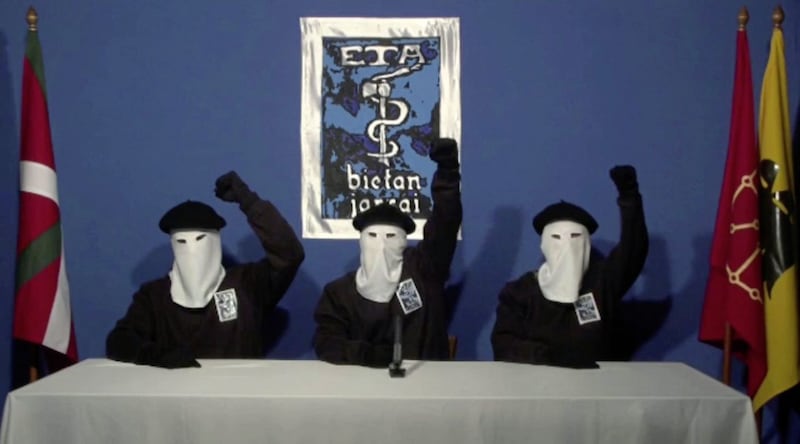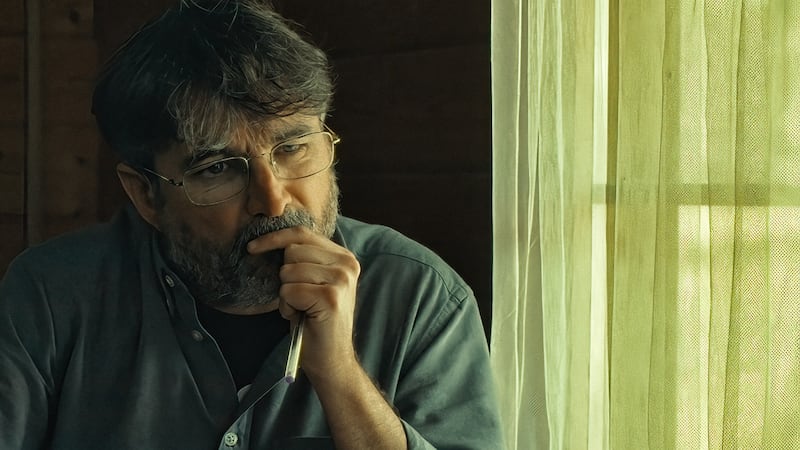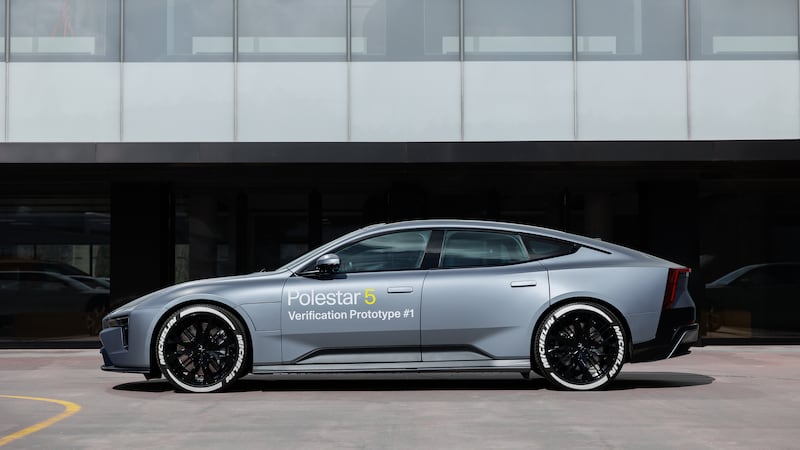The Basque and Northern Ireland conflicts are similar in some ways – the timeframe, the use of the car bomb, the terminology, the transition into politics and the elongated peace process.
I don’t know enough about the situation to say if Spain and the Basque country are in a better position as regards legacy, but this interview suggests some progress.
Josu Urrutikoetxea, also known as Josu Ternera, sits down for a 100-minute grilling by journalist Jordi Évole.
Ternera, a nom de guerre he doesn’t like (the original title is No me llame Ternera – Don’t Call Me Ternera), accepts he was an active member of ETA from the early 1970s until he left the organisation over a disagreement on peace talks in 2005.
Nonetheless, Ternera remained trusted enough to read out ETA’s disbandment statement in 2018.
He’s careful with his words and phraseology but Ternera does not shy away from his own actions and the violence brought about by his organisation.
ETA was founded in 1959 during the oppressive Franco regime with the aim of creating an independent Basque nation by ceding from both Spain and France.
BBC’s Julius Caesar documentary review: Donald Trump may be more pleased than offended
Robbie Williams Netflix review: An addict who can’t seem to walk away from fame
But it wasn’t originally a violent organisation, with its first killing not until 1968. By 2011 when it announced a cessation of activities, however, it had killed 852 people. Police and paramilitaries killed 73, according to the programme.
The last year of sustained violence was in 2000 when 23 were killed.
ETA was synonymous with the indiscriminate destruction of the car bomb, including the Hipercor supermarket bomb in Barcelona in 1987 which killed 21, including 9 children and the Civil Guard barracks bomb in Zaragoza in the same year killing 11, including five children.

Ternera remains on bail in France awaiting a Spanish extradition hearing. He’s charged with the 11 Zaragoza murders.
The interview was first broadcast at the San Sebastian Film Festival in September, leading to protests in Spain and a campaign for it to be banned.
It’s a stark presentation. Ternera and Évole sitting opposite each other for the full 100 minutes.
There is footage of attacks and press conferences, but it’s essentially Évole questioning and probing.
It’s excellently handled by the journalist. He confronts Ternera repeatedly with the horror of ETA’s actions but never so aggressively that the two can’t maintain a civil conversation.
Ternera ‘regrets’ some actions (The Hipercor bombing and the killing of former female ETA activist Yoyes for seeking to open a dialogue with the Spanish government) and seeks to justify and shift blame for others.
For instance, he seeks to the blame the authorities for the Hipercor killings because they didn’t clear the supermarket after telephone warnings from ETA, which has a familiar echo in the north.
But on a number of occasions, Ternera gets very close to accepting the violence was wrong.
It’s wrapped up in group responsibility, but none the less he accepts that they lost control.
“Armed conflict was never an end in itself. Ever,” he says.
“But those decades of armed conflict caused victims on both sides. Irreversible outcomes. And I think those victims must be acknowledged. And the confrontation, the conflict, has led us to practically forget, almost always, the ethical side of things.
“That aspect has been pushed aside to an extent by the adverse consequences of the crescendoing violence brought on by both sides. And that violent spiral has led all of us to become desensitised to the suffering of others. To the pain of others.”
“Is that what happened to you?” Évole asks. “Absolutely,” Ternera fires back.







